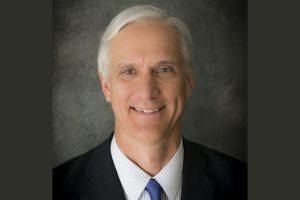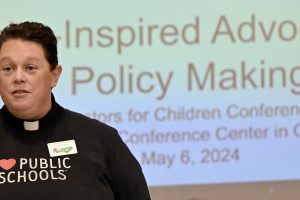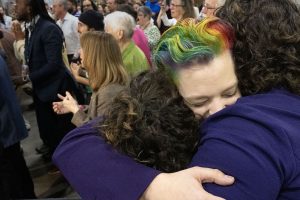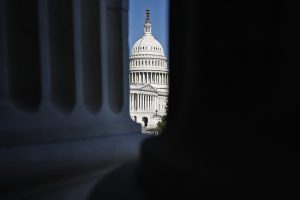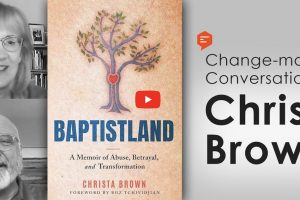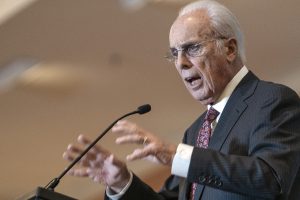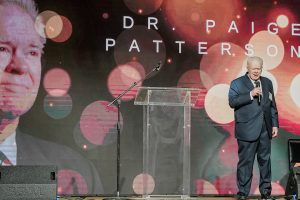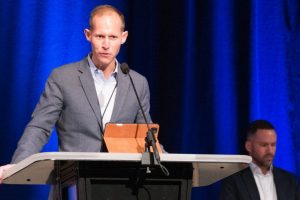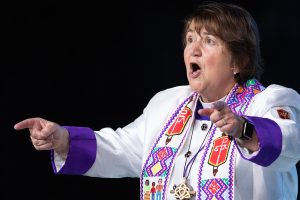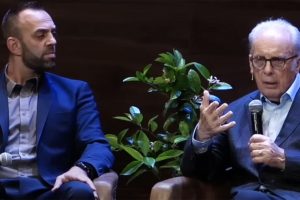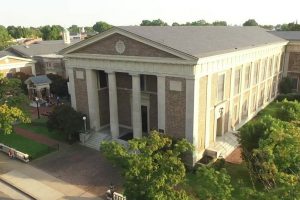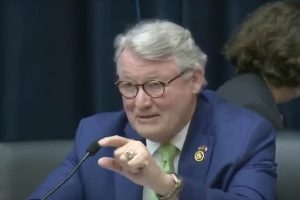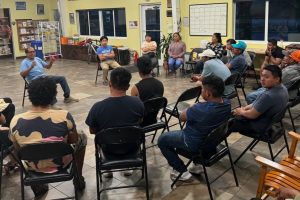By Ron Crawford
A response to “Seminaries reluctantly selling their souls,” by Brett Younger.
So, I bought the microwave oven anyway!
Typically, my wife and I reach a consensus before we make major purchases; in the early 1980s a microwave oven was a major purchase for us. After lengthy conversation we simply could not agree on the purchase. My wife was certain this new oven could not live up to the “ridiculous” claims of TV advertising: “It will not defrost frozen meat like that.” We were at an impasse. So, I bought the microwave oven anyway!
I am glad that little microwave oven became a mainstay in our home; or else I might not have been able to stay.
Every generation has trouble embracing the technology of a new age; online education is no exception. Embracing new technology, or not, is rarely about data or scientific studies. It rather tends to be about conviction, history, comfort and personal self interest. Some are slow to recognize the value of new technology.
A word about context
Theological education in these days is caught in a quagmire not of its own making. Seminaries face the emerging Information Age and the unsettling decline of congregational life.
As Glenn Miller noted in the conclusion of Piety and Pluralism, theological education is a dependent market. When local congregations are doing well seminaries flourish. When local congregations struggle seminaries go hungry, for students and donations. Local congregations give birth to ministers and then receive them back as congregational leaders, after seminary graduation. The fortune of seminaries is utterly dependent on the congregations they serve. Part of the seminary quagmire of these days is rooted in the struggles of local congregations.
Part of the seminary quagmire of these days is also rooted in the emerging Information Age. The specialized knowledge seminaries were once the custodians of is now all over the Internet. “Google it” is a way of life and it has forever changed how we do theological education.
Resisting online education and the potential it offers (even on a modest scale for traditional face-to-face classes) is a mistake of the highest order. As always, throughout the history of humanity, we either change or we die.
A word about online learning
There are two basic styles to online learning: synchronous and asynchronous. Synchronous attempts to replicate the traditional classroom context of face-to-face learning; a class meets online at the same time. Asynchronous assumes students and professor will post questions and replies over an extended timeframe and rarely will be online at the same time.
Online learning requires a thoughtful pedagogy and a well-crafted course design, more so than in a traditional class setting, which is part of the reason some professors struggle with online learning. Moving a course from the traditional classroom to the online environment requires a complete redesign of the course — lots of hard work.
While I cannot answer all the concerns about online learning in one article I will offer a few key observations.
First, online learning is more engaging than traditional learning. Memory is selective. Some people have forgotten all the boring parts of traditional learning in the 1970s, 1980s and 1990s: stale lectures which simply repeat what is in the text books, snoozing-off because the professor pontificates, large classes which inhibit dialogue and conversation. We didn’t use traditional methodology in the classroom because it was the best of six options. We fell into the pattern of the traditional classroom because it was all we had in the quiver.
In the face-to-face classroom the professor asks a question and two types of students reply: the extroverts who cannot keep silent and those who want to impress the professor. All the introverts remain silent. In the online environment the “silent ones” come forward and they push the conversation to a much deeper and more substantial level. In the online environment the conversation will go deeper and will be far more substantial than in the traditional classroom — hands down; this isn’t even close.
Or let me offer a different approach to the same point. Why do you think so many people are falling in love online these days? Because in the online environment the conversation naturally and easily goes deeper. All who suggest online learning lacks emotional depth and strong emotional connections need to explain away why so many people fall in love online. Good luck with that!
Having taught eight seminary classes with a robust online discussion board (asynchronous) I can assure you the online conversation is much deeper than what is achievable in traditional classroom settings. In face-to-face settings a lot of energy goes into reading non-verbal cues and students are more guarded in speech lest they slip and say more than they wanted to say. In the online environment students can write their response in Word, review it (and spell check) before they offer their comments (post them). This allows students to avoid all the potential pitfalls of face-to-face communications.
Second, online learning offers expanded learning methodologies which can enhance student learning in significant ways.
We are a four IPad family! My wife and I both have IPads, purchased in the last few years. Our old IPads are loaded with apps for kids — grandchildren. There are a host of amazing apps for kids, many featuring great educational programs. Why would we exclude great resources for learning from the seminary classroom? When will those of us in theological education begin developing apps for our students? Why isn’t there an app for learning Greek or Hebrew words?
If seminary education is going to be relevant we have to include technology in all aspects of preparing students for ministry. To fail to use all the resources available in preparing women and men for ministry is a terrible mistake.
Third, online learning can move learning closer to ministry. What about a preaching class online? Does this sound ridiculous? You may want to keep your “powder dry” on this one.
In traditional face-to-face preaching classes a significant portion of class time is given to students preaching. If the class meets for 33 hours (total across a semester) then 20 of those hours might be given to students preaching in class, before a professor and 15 to 20 students — all taking notes for critique. Thus, the sermon is taken from the wholesome context of worship and placed in a sterile context of critique. That is a tough crowd to preach to — though I am sure they need it.
In an online preaching course students are asked to video tape themselves preaching to a congregation. What a novel idea. A student might preach three or four sermons (or more) across the semester. These video offerings will then be reviewed by the professor (and potentially other students) and a group of laypersons in the congregation. Instead of students sitting mindlessly through 20 hours of fellow students preaching, the professor assigns students five student videos to review and make observations on — as a way of helping students develop the critique skills needed to eventually evaluate their own preaching. Instead of students critiquing one another’s sermons, why not pick a handful of internet sermons from seasoned preachers and let the class critique them.
The educational options and possibilities with an online preaching course far and away exceed the possibilities of a traditional classroom and in the process students do not “waste time” listening to a fellow student’s sermon when there is far more useful ways to spend those hours.
Preaching to a class of critics is not the same as preaching to a congregation filled with people “pulling for you.” If the goal of a preaching class is student learning (for students to get better at preaching) then why would we not focus on students preaching where preaching is to be done — the local church? The content part of a preaching class (lectures, texts, class discussion) will work easily in the online environment.
Forging a way forward
The best way to kill theological education is to sneer at the emerging Information Age. Technology will fulfill a central role in the future and the sooner we embrace this idea the better it will be for theological education. Resisting the obvious will kill divinity schools and seminaries in the coming decades.
Traditional theological education has centered in acquiring specialized knowledge, spiritual formation and developing practical skills for ministry.
The specialized knowledge part of theological education can go online tomorrow. This is information about biblical languages, popes, the Reformation, Baptist history, historical theology, philosophy, the Problem of Evil, biblical criticism and a host of other subject matter. Add a robust discussion board experience and access to a professor via email or Skype or both, and one is good to go. These courses could be offered on a rotating basis, online one year and face-to-face the next. Why not?
The practical skills part of the seminary experience could move closer to local congregations and ministry settings by moving the course to an online environment. The example of the preaching class noted above is one possibility. There are many other ways of doing the very same or similar things with practical courses.
The spiritual formation part of theological education is the one part of the experience which is more challenging for an online environment. This is the part of Brett Younger’s view which I think has the most merit, if I have interpreted him accurately. In short, in theological education we are not teaching people to do ministerial things, we are helping to transform them into ministers of the gospel of Jesus Christ. Ministry is not so much what you do as who you become.
In this area, we will do well to admit the obvious — most divinity schools and seminaries are going to offer spiritual formation courses online in the future.
We will also do well to admit spiritual formation has never been the exclusive purview of seminaries. Most spiritual formation happens before or after the seminary experience. The seminary experience has been critical in helping students make sense of spiritual formation and has provided key insights into student’s understanding of spiritual formation in a way that integrates it into a healthier self. Spiritual formation tends to gel in the seminary experience. Or in the seminary experience one’s ministerial identity takes shape.
Whether this can be done exclusively in an online environment remains to be seen, in my opinion. Even so, spiritual formation can happen in hybrid courses. For a number of years I have taught a doctor of ministry course in August. Students begin their course work in June reading and answering (but not posting) questions I provide. The first two weeks of August are spent online in discussions (around the questions I provided in June and students’ responses). The third week of August, students are in residence. The morning is filled with face-to-face classroom work (mostly my presentations) and the afternoons are devoted to peer learning experiences. In this format students spend 15 to 25 hours in a face-to-face learning environment and many more hours in reading, writing and online work. This format requires one week in residence.
Even for the most ardent traditionalist this format answers 90 percent or more of their objections to online learning in the area of spiritual formation.
Conclusion
While I have the greatest respect for Brett Younger and his ministry, I do not share his view of online theological education. Seminaries which are taking advantage of technology are not “selling their souls” nor are they doing seminary on the cheap (good online education is not noticeably less expensive). Rather, they are finding better ways of teaching. They are adapting to an inevitable future.
As one trained in a traditional model of theological education and as one mostly lost in the world of modern technology, I nevertheless see the rich possibilities of technology for the future of theological education. Entrenched, technology naysayers will not claim the future. We live in a time of rich opportunities, opportunities to enhance theological education, for those with eyes to see.
I have no interest in throwing the baby out with the bath water. I am not an advocate of 100 percent online theological education. As I have argued above, we can forge a new and better model for theological education by doing three things: adding online components in all face-to-face classes and teaching courses online; finding ways to move practical courses closer toward ministry settings as noted in the preaching class example above; and including a liberal use of hybrid courses where face-to-face experiences are required.
Resisting the Information Age and its technology is a really bad idea. Co-opting the Information Age and its technology is a much better idea.





